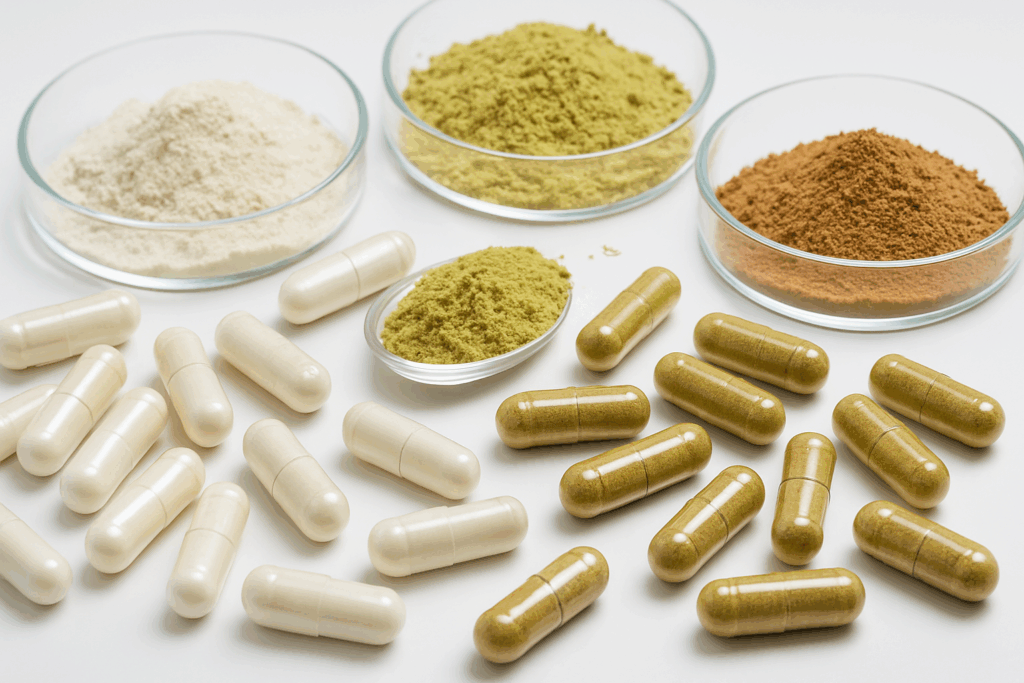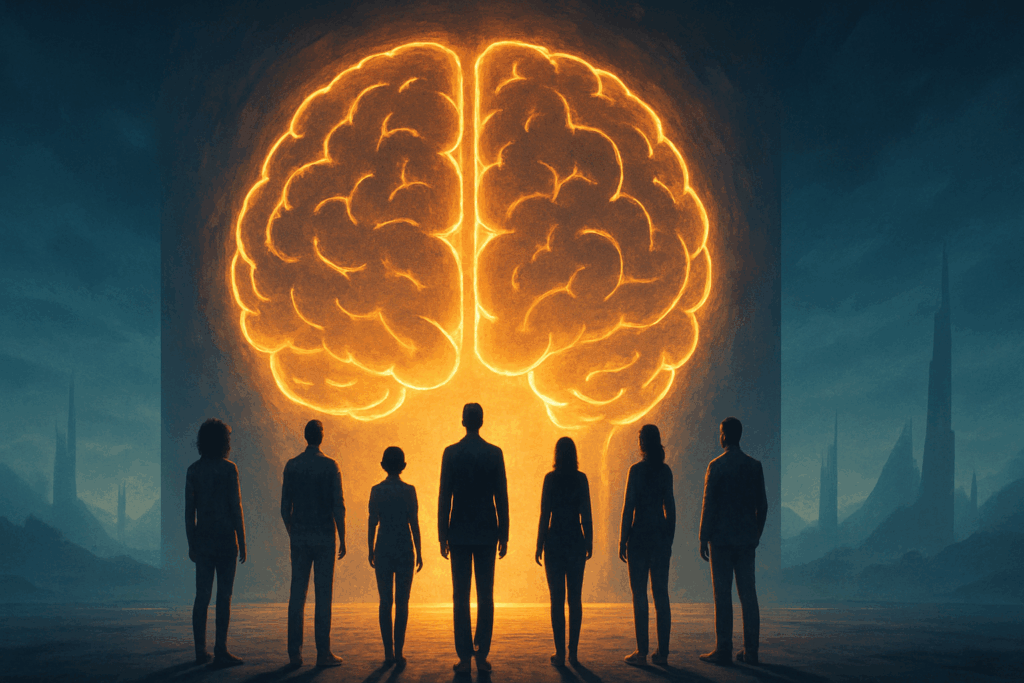Introduction: Unlocking the Mind’s Potential Through Science and Supplements
In a world where mental performance can define professional success and personal satisfaction, the search for cognitive enhancement has taken center stage. From busy executives seeking sharper decision-making skills to students aiming for better academic outcomes, the demand for brain-boosting solutions is growing exponentially. Among the frontrunners in this pursuit are nootropic compounds, and one company has garnered particular attention for its dedication to cognitive optimization: NewMind. Offering a sophisticated selection of research chemicals and nootropic compounds, NewMind supplements have become a popular point of discussion among cognitive enhancement enthusiasts. This article explores the world of NewMind nootropics, their role in managing conditions like narcolepsy and ADHD, the emerging landscape of brain doping drugs, and the evolving legal status surrounding these interventions. By delving into the science and ethical questions that surround cognitive enhancers, we can better understand how to navigate this transformative but complex field.
You may also like: How to Choose the Best Brain Supplements for Adults: Science-Backed Ingredients That Support Focus, Memory, and Mental Clarity
Understanding NewMind Supplements and the Rise of Nootropics
NewMind supplements represent a curated collection of compounds designed to support cognitive function, mood regulation, memory retention, and wakefulness. While the term “nootropic” was initially coined in the 1970s to describe substances that enhance mental functions without significant side effects, today’s market encompasses a wide array of substances with varying levels of efficacy and safety. NewMind nootropics offer a unique selection, with options ranging from cholinergic enhancers to dopamine modulators, all aimed at supporting different facets of mental performance. These supplements are particularly valued in academic and professional circles where the cognitive demands can be relentless.
One distinguishing feature of NewMind supplements is their emphasis on purity and transparency. Unlike many over-the-counter blends that offer proprietary formulas without detailed ingredient breakdowns, NewMind focuses on single-ingredient offerings. This model allows users and researchers alike to experiment with specific compounds in a controlled and informed manner. As cognitive enhancement gains broader societal acceptance, platforms offering rigorously tested products like NewMind nootropics have carved out a niche for those who seek serious, evidence-based solutions.

Narcolepsy and Cognition: Exploring Medical Treatments and NewMind Nootropics
Narcolepsy, a chronic sleep disorder characterized by overwhelming daytime drowsiness and sudden attacks of sleep, poses significant cognitive challenges. Individuals with narcolepsy often experience “brain fog,” memory lapses, impaired concentration, and slower decision-making abilities. Traditional narcolepsy cognition enhancing medications such as modafinil and armodafinil have transformed the treatment landscape, allowing many patients to regain a semblance of normalcy in their daily lives.
In recent years, researchers and clinicians have begun to explore additional compounds that could further bolster cognitive resilience in narcoleptic patients. NewMind supplements, while not marketed as medical treatments, include several compounds that support wakefulness and executive function, making them of interest to individuals seeking complementary strategies. For example, compounds that modulate the dopaminergic and cholinergic systems may enhance focus and alertness in ways that standard stimulant therapies cannot fully address. It is important to emphasize, however, that individuals with narcolepsy should consult healthcare providers before introducing any new substance, even if it is available through reputable vendors like NewMind.
Some patients and researchers have experimented with combining traditional narcolepsy cognition enhancing medication with targeted nootropic support to optimize mental clarity without increasing stimulant dosages. Although such approaches remain largely anecdotal and under-researched, they highlight a growing trend toward personalized cognitive health management. The thoughtful use of NewMind nootropics within clinically supervised frameworks may offer a promising frontier for those striving to regain their cognitive vitality.

The Concept and Controversy of Brain Doping Drugs
Brain doping, the practice of using pharmacological agents to boost cognitive abilities in healthy individuals, has stirred considerable debate among ethicists, scientists, and policymakers. While the term originally applied to elite athletes’ use of physical performance enhancers, it now increasingly refers to mental augmentation. NewMind supplements are frequently mentioned in these conversations because they embody the transition from niche academic interest to mainstream cognitive ambition.
One reason brain doping is so controversial is the blurred line between therapy and enhancement. Modafinil, for instance, was originally developed as a narcolepsy cognition enhancing medication but has since gained popularity among healthy individuals seeking an edge in competitive environments. Critics argue that widespread cognitive enhancement could exacerbate social inequalities, particularly if such interventions remain accessible only to those with financial means. Proponents counter that brain doping drugs could democratize productivity and creativity if made widely available and affordable.
NewMind nootropics contribute to this evolving narrative by offering a range of substances that extend beyond traditional stimulants. From racetams that may enhance synaptic plasticity to ampakines that modulate glutamate receptors, the diversity of available compounds challenges simplistic notions about what cognitive enhancement entails. As research continues to unfold, society must grapple with complex ethical questions: Should cognitive enhancement be regulated similarly to doping in sports? Or should it be embraced as part of human progress?
Are Nootropics Legal? Understanding the Regulatory Landscape
The question “are nootropics legal?” does not yield a simple answer because the legality of cognitive enhancers varies significantly depending on the compound, country, and intended use. In the United States, many substances sold as NewMind supplements occupy a legal gray area. Some, like caffeine and L-theanine, are generally recognized as safe and available over the counter. Others, such as modafinil, require a prescription for legal purchase and use.
NewMind nootropics typically emphasize research-grade compounds, meaning they are sold with the understanding that they are intended for scientific study rather than human consumption. This distinction allows vendors to legally distribute compounds that have not been approved by regulatory bodies like the FDA for therapeutic use. However, consumers must exercise caution, as the purchase, possession, or use of certain compounds could still run afoul of local laws, particularly if used outside of research contexts.
Internationally, regulations can be even more stringent. In countries like Australia and Japan, many cognitive enhancers are classified as controlled substances, and their possession without a proper prescription can lead to severe penalties. Conversely, in parts of Europe and Canada, a more permissive attitude prevails toward supplements, though regulations still exist to ensure consumer safety. Understanding the legal status of NewMind supplements in one’s jurisdiction is therefore essential for responsible use. As public interest in cognitive enhancement continues to grow, it is likely that the legal frameworks surrounding these substances will evolve, potentially making products like NewMind nootropics either more accessible or more tightly regulated in the years to come.

ADHD, Executive Function, and the Role of Nootropics
Attention Deficit Hyperactivity Disorder (ADHD) presents a unique cognitive profile characterized by difficulties in sustaining attention, regulating impulses, and organizing tasks. Traditional pharmacotherapy relies heavily on stimulant medications like methylphenidate and amphetamines, which enhance the brain’s dopaminergic and noradrenergic pathways to improve focus and self-control. However, these treatments are not without drawbacks, including potential side effects like appetite suppression, sleep disturbances, and mood swings.
NewMind supplements provide an intriguing avenue for individuals seeking additional or alternative support for attention regulation. While not substitutes for clinically approved ADHD medications, certain NewMind nootropics target neurotransmitter systems implicated in attention and executive function. For instance, compounds that enhance acetylcholine activity have been associated with improved memory and attentional control in preliminary studies.
Moreover, some users report that specific NewMind nootropics can support mental endurance and emotional regulation, two areas often challenged in individuals with ADHD. Natural supplements like citicoline and alpha-GPC, as well as experimental agents like aniracetam and fasoracetam, are frequently discussed in forums dedicated to cognitive health. As always, individuals interested in these options should consult healthcare professionals and proceed cautiously, recognizing that “natural” does not automatically mean “safe for all uses.”
In many ways, the intersection of ADHD management and cognitive enhancement epitomizes the broader conversation about brain doping drugs. When does a treatment shift from remedying dysfunction to augmenting performance beyond baseline? NewMind supplements occupy a critical space in this dialogue, offering a spectrum of tools that reflect both the promise and complexity of cognitive science.
Practical Considerations: Choosing and Using NewMind Nootropics Safely
Navigating the world of cognitive enhancers demands both curiosity and caution. Although NewMind nootropics provide access to a diverse range of cognitive agents, responsible use hinges on informed decision-making. First and foremost, individuals should prioritize compounds with well-documented safety profiles and avoid stacking multiple agents without a clear understanding of their pharmacodynamic interactions.
Starting with low doses and carefully monitoring cognitive, emotional, and physical responses is another best practice. Journaling experiences over time can help users detect patterns, discern benefits, and avoid potential pitfalls. Given the legal ambiguities surrounding some NewMind supplements, users should also remain informed about regulatory developments in their regions to minimize legal risks.
Another important consideration is sourcing. Counterfeit or contaminated products are a significant risk when purchasing nootropics from unverified suppliers. NewMind’s reputation for rigorous third-party testing and transparent sourcing standards offers some protection, but users should still verify certificates of analysis and seek out independent reviews where possible. By approaching cognitive enhancement with the same rigor one would apply to any serious health endeavor, individuals can maximize potential benefits while minimizing unnecessary risks.
Ethical Implications: The Future of Cognitive Enhancement
The ethical landscape of cognitive enhancement is rapidly evolving. As NewMind nootropics and other brain doping drugs become more accessible, questions about fairness, consent, and societal impacts loom large. Will cognitive enhancers widen socioeconomic gaps by favoring those who can afford them? Could employers one day expect employees to take performance-enhancing drugs to stay competitive? How do we balance individual autonomy with collective well-being?
One promising direction involves developing ethical guidelines for cognitive enhancement, much like existing frameworks for sports doping. Voluntary disclosure policies, education about risks and benefits, and promoting equitable access could help mitigate some of the most pressing concerns. Ultimately, fostering an informed public dialogue will be crucial in shaping how society integrates cognitive enhancement technologies.
NewMind supplements exemplify both the possibilities and the responsibilities inherent in this new frontier. They offer powerful tools for mental optimization but also challenge us to think deeply about how we define achievement, fairness, and human flourishing in an era where biology itself is increasingly modifiable.

Frequently Asked Questions (FAQ) on NewMind Supplements and Cognitive Enhancement
1. How do NewMind supplements fit into the evolving field of personalized nootropics?
NewMind supplements are uniquely positioned to cater to the emerging trend of personalized brain health optimization. Instead of offering generic, one-size-fits-all formulas, many NewMind nootropics are tailored to individual neurotransmitter needs, lifestyle factors, and cognitive goals. This means users can fine-tune their supplementation based on real-time feedback from biomarker testing or cognitive performance tracking. Personalized nootropics like these are part of a larger shift toward precision medicine, where interventions are customized rather than standardized. As the field evolves, expect NewMind supplements to increasingly integrate with AI-driven health platforms for even finer-tuned brain optimization protocols.
2. What are the long-term benefits of using NewMind nootropics beyond immediate focus improvement?
While NewMind nootropics are often marketed for immediate cognitive enhancements such as sharper focus or quicker recall, the long-term benefits could be even more significant. Regular, responsible use may support neuronal plasticity, synapse formation, and even the upregulation of neurotrophic factors like BDNF (Brain-Derived Neurotrophic Factor). These changes contribute to sustained brain resilience, potentially delaying cognitive decline associated with aging. Moreover, some compounds in NewMind supplements may enhance mitochondrial health, supporting better energy metabolism in neurons over the long haul. However, it’s crucial to cycle and monitor these supplements for optimal long-term results.
3. Are there psychological or social effects associated with the long-term use of NewMind supplements?
Beyond biochemical changes, consistent use of NewMind supplements could influence psychological traits like motivation, emotional regulation, and creativity. Anecdotal reports suggest that some users experience heightened social confidence and improved verbal fluency after integrating certain NewMind nootropics. Socially, this could lead to more effective networking, leadership opportunities, and relationship-building. However, these psychological effects may vary depending on baseline neurotransmitter profiles and lifestyle habits. Consulting a healthcare provider familiar with nootropic interventions is recommended to maximize these social and emotional benefits safely.
4. How do NewMind nootropics compare to other cognitive enhancers on the market?
NewMind nootropics differentiate themselves with an emphasis on pharmaceutical-grade purity and customizable compounds not easily found elsewhere. While many over-the-counter cognitive enhancers focus on generic ingredients like caffeine or ginseng, NewMind supplements offer access to racetams, cholinergic enhancers, and dopamine agonists under strict quality control. This gives them an edge in both effectiveness and research-based legitimacy. Users seeking more nuanced cognitive modulation—such as enhancing divergent thinking or sensory acuity—may find NewMind products offer capabilities that mass-market alternatives simply cannot match.
5. What safety precautions should be taken when starting a NewMind supplements regimen?
Starting a regimen with NewMind supplements requires a high degree of self-education and medical oversight to minimize risks. It’s essential to begin with conservative dosages and introduce one compound at a time to track individual reactions. Given the potency of many NewMind nootropics, blood pressure, sleep patterns, and mood should be closely monitored. Additionally, users should be cautious about stacking multiple supplements without understanding possible synergistic or antagonistic interactions. Working with a healthcare professional who is knowledgeable about advanced nootropics ensures that the benefits of NewMind supplements can be realized without jeopardizing health.

6. Can NewMind nootropics be used to support recovery after cognitive stress or brain injuries?
Emerging anecdotal evidence suggests that NewMind nootropics may offer adjunctive benefits for recovery after cognitive stress or mild traumatic brain injuries (mTBI). Compounds like citicoline and noopept, available through NewMind supplements, have shown potential in supporting membrane repair and neurogenesis. While nootropics should never replace primary medical interventions, integrating targeted compounds into a post-recovery plan—under physician supervision—could enhance healing outcomes. Personalized regimens, particularly those involving anti-inflammatory and neuroprotective agents, could make NewMind nootropics a valuable tool in neurological rehabilitation strategies.
7. How are innovations in biotechnology shaping the future of NewMind supplements?
The future of NewMind supplements will likely be heavily influenced by breakthroughs in biotechnology such as CRISPR gene editing, nanotechnology, and metabolomics. These advances may allow NewMind nootropics to become even more precisely targeted, enhancing specific neural circuits or gene expressions associated with focus, memory, and emotional regulation. For instance, future versions of NewMind supplements could incorporate nanoparticle delivery systems that cross the blood-brain barrier with greater efficiency. Staying informed about these innovations will be crucial for users who want to maximize the cutting-edge potential of cognitive enhancement technologies.
8. What role does lifestyle play in maximizing the effectiveness of NewMind nootropics?
Lifestyle factors play a pivotal role in determining the success of any nootropic regimen, including those built around NewMind supplements. Optimal results depend not just on supplementation but also on quality sleep, consistent exercise, a nutrient-dense diet, and effective stress management practices. NewMind nootropics work synergistically with these healthy habits, amplifying their effects rather than acting as a substitute. For instance, combining a NewMind cholinergic stack with daily mindfulness meditation can lead to measurable improvements in working memory and decision-making speed. Ignoring lifestyle basics can severely blunt the cognitive advantages that NewMind supplements can offer.
9. How can users ethically navigate cognitive enhancement using NewMind nootropics?
The ethical use of NewMind supplements revolves around principles of fairness, informed consent, and personal responsibility. Users should consider the broader societal implications of cognitive enhancement, particularly in competitive environments like academia or high-stakes professions. Open discussions with employers, colleagues, or academic institutions about the use of cognitive aids may foster a healthier culture around nootropic usage. It’s also important to distinguish between therapeutic use (e.g., recovering cognitive function after illness) and enhancement for competitive gain. As NewMind nootropics become more popular, setting personal ethical guidelines will be crucial to maintaining integrity and trust.
10. What potential developments should users watch for regarding regulation of NewMind supplements?
Regulatory scrutiny of advanced nootropics, including NewMind supplements, is expected to increase as public interest grows. Agencies like the FDA are already exploring frameworks for overseeing cognitive enhancers that blur the line between supplements and pharmaceuticals. Users should stay informed about any evolving legal definitions that could impact the availability or classification of certain NewMind nootropics. It’s also wise to purchase directly from reputable sources to avoid counterfeit risks as the market matures. A future where cognitive supplements are more heavily regulated will likely emphasize transparency, quality control, and clinical validation—areas where NewMind is already setting a high standard.

Conclusion: NewMind Supplements, Cognitive Enhancement, and the Evolving Landscape of Brain Health
As society continues its pursuit of greater mental acuity and emotional resilience, the role of platforms like NewMind becomes increasingly significant. NewMind supplements offer an expansive array of tools to support focus, memory, wakefulness, and emotional well-being. By providing access to both traditional and cutting-edge nootropic compounds, NewMind nootropics empower individuals to tailor cognitive enhancement strategies to their unique needs and goals.
Yet with this empowerment comes a heightened need for responsibility. Understanding the nuanced legal status of cognitive enhancers, recognizing the differences between therapeutic and enhancement uses, and grappling with the ethical ramifications of brain doping drugs are all essential for informed participation in this evolving field. As more individuals seek alternatives to traditional ADHD treatments or supplemental strategies for narcolepsy cognition enhancing medication, the demand for safe, effective, and transparent cognitive enhancers will only grow.
Ultimately, NewMind nootropics represent more than just a catalog of compounds; they symbolize the next chapter in humanity’s quest to optimize its most vital organ. By combining scientific rigor, personal responsibility, and ethical reflection, we can ensure that cognitive enhancement contributes to a future marked not by division or inequity, but by shared advancement, well-being, and intellectual empowerment.
Further Reading:
Cognizin® Citicoline One of 11 Researched Nootropics in New Mind Lab Pro


